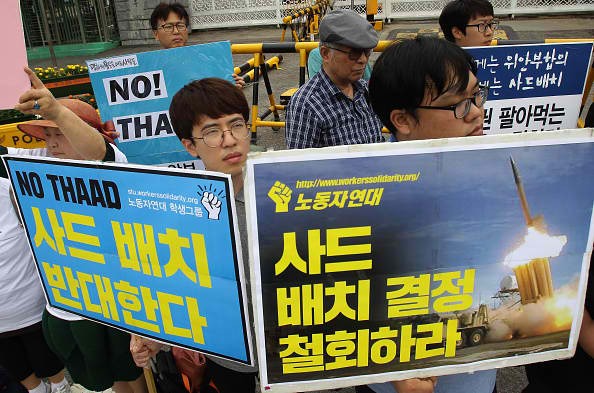China's rapid rise to the top of the world's economic and political stakes further highlights its increasing role in one of the world's most pressing security issues: North Korea's nuclear threat. Kim Jong-un's rogue regime has led China to take on North Korea cautiously as it also deals with the U.S. through South Korea.
China-Korea relations currently lie on wobbly grounds, in that the Chinese government risks being perceived as a protector of North Korea amid its attempt to show a pacifist face in dealing with the issue, which the U.S.-South Korea-Japan diplomatic trifecta approaches with intense skepticism.
The question on whether China would prefer the collapse of the North Korean regime is undermined by the status quo, in which both countries share trade relations. But China's recent halting of North Korean coal imports serves as a telltale sign that the Chinese government is starting to change its course.
Nonetheless, such does not bode well with China's current stand on South Korea's THAAD deployment, which the Chinese government denounced as a trigger for greater violence in the Korean peninsula. China, however, has found itself in a diplomatically-precarious situation over such a reaction.
Although China can always use its economic advantage as its smoking gun against North Korea once its nuclear threat strengthens, it can always move against a regime collapse if it means creating a buffer in the Korean peninsula, what with the possible growth of U.S. influence there under a unified Korea.
China's policy toward Korea would thus become lenient on denuclearization alongside peace talks in the form of the currently postponed Six-Party Talks, as a way for the Chinese government to wriggle out of its awkward position as it argues that the U.S. is in pole position to deal with North Korea.
But South Korea would most likely insist on China's role, given the Chinese government's economic influence and ideological parallels with the rogue regime. Thus, South Korean diplomacy towards China should strategically press on the THAAD's necessity in the face of North Korea's increasing belligerence.



























